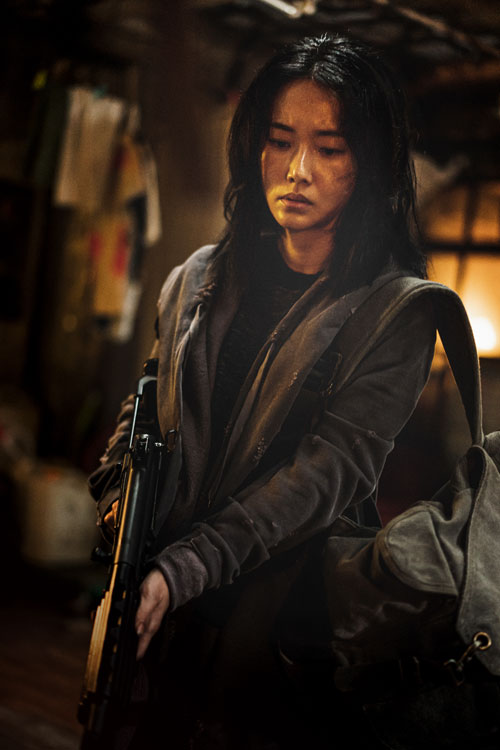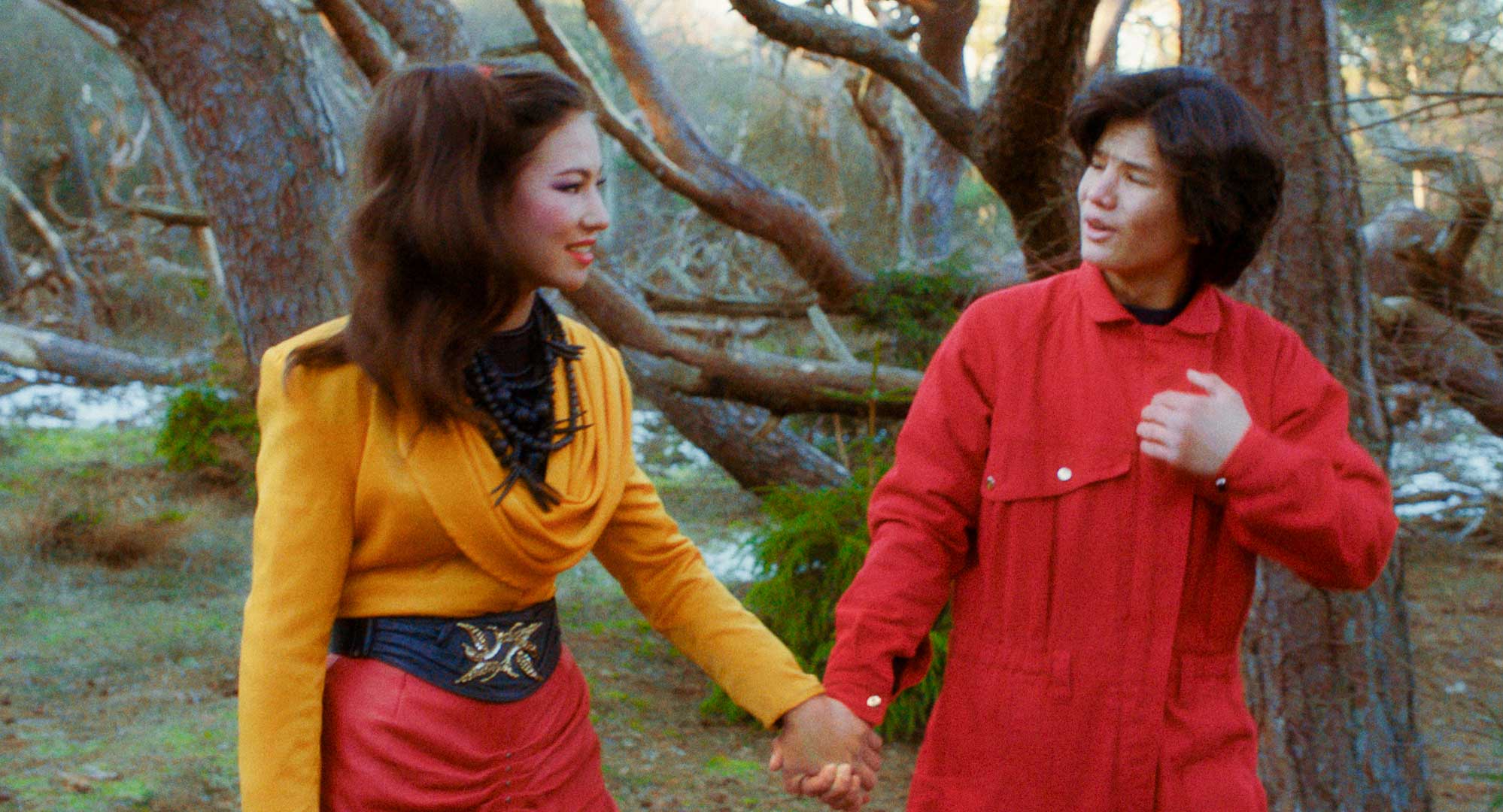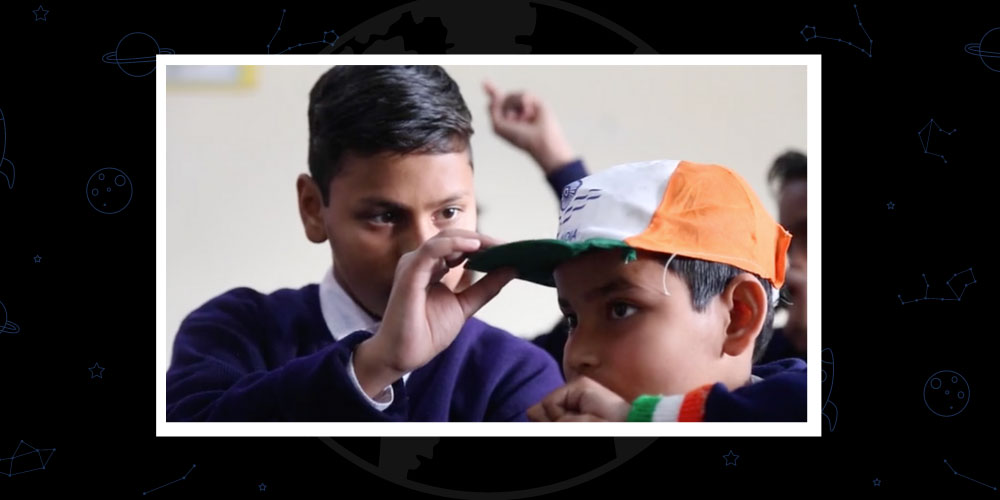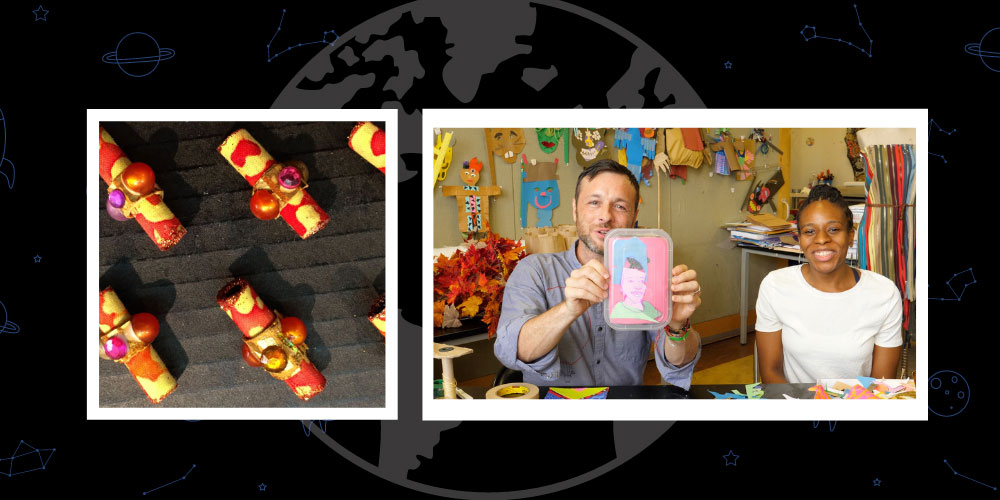
“I am very happy that Korean movies are loved by people all over the world beyond Korea.’ – Yeon Sang-ho
penisola is a movie about how to survive the end of the world. La storia è un sequel che si svolge 4 years after the original zombie outbreak in Train to Busan. The Korean peninsula has been devastated and Jung Seok, a former soldier, is given a mission to go back, and unexpectedly meets survivors. The film from Director Yeon Sang-ho has been one of the most anticipated Korean films released this year. It stars Gang Dong-won and Lee Jung-hyan.
This year Coronavirus disrupted the movie industry globally but the successful box office performance of penisola to date with its themes of solidarity and isolation have inspired movie lovers everywhere, and perhaps also given movie theaters hope for the future.
Il Global Ricerca per l'Educazione is pleased to welcome the director of Peninsula, Yeon Sang-ho.

“This story contains the theme that we can change our lives through solidarity and hope.” – Yeon Sang-ho
How do you think the themes of Peninsula will resonate with audiences given the global pandemic?
At the time when penisola was planned, the current pandemic was not considered at all. Tuttavia, penisola is a story of what we can hope for in times of frustration and isolation. And this story contains the theme that we can change our lives through solidarity and hope. Through the movie penisola, many people hope to have hope. In aggiunta, penisola is a film that makes you feel more and more fun when you visit the theater. I hope it is a gift for those who have missed the daily fun of watching a movie in the theater for a while.
What was it like to work with a budget almost twice the amount of your last movie? How did a bigger budget impact the film’s creative process?
It is true that the budget was expanded, but the world and the spectacle to be expressed were overwhelmingly larger than the previous works, so the work process was not as relaxed as before. Piuttosto, it was a situation where we had to come up with a number of ideas to keep our budget from getting too high. We wanted the audience to have more fun and spectacle than the previous work, and we created it so that the audience could see and have a lot more fun than the previous work.

“I wanted to express the feelings that ordinary people have when they are going through difficult challenges.” – Yeon Sang-ho
Was there a point in which you considered carrying on the story of the characters from Train to Busan in this film? What inspired you to continue with this universe in an entirely new scenario?
In penisola, the characters who came to Busan do not appear again. penisola is a movie with a different starting point from Busan, and because it has a different starting point, a new set of characters were needed.
But the protagonists of my film were hoping that they would be ordinary people, not giant figures or people with massive malice. I wanted to express the feelings that ordinary people have when they are going through difficult challenges.
Films like Parassita e Train to Busan have exposed global audiences to the amazing talent in South Korea. How has this benefited other filmmakers in South Korea?
I am very happy that Korean movies are loved by people all over the world beyond Korea. It seems that this kind of film industry expansion is giving Korean creators a wider range of imagination. And I believe that these new imaginations will be a great boost to the world’s film industry.

“People in the film industry believe that even in this situation, they will be able to invent new ways to create new films and allow new audiences to experience their imagination.” – Yeon Sang-ho
Who are the directors that you most look up to – the ones that have inspired you as a filmmaker?
In my 20s, I was greatly influenced by directors Bong Joon-ho, Park Chan-wook and Lee Chang-dong, who were actively creating and leading the Korean film industry. Among overseas directors, the animation director Kon Satoshi was the most influential.
With the exception of animated films, film production everywhere has been impacted by the pandemic. Are you seeing a return to “normal” in the near future in your film community?
I don’t know how the situation will go forward, but people in the film industry believe that even in this situation, they will be able to invent new ways to create new films and allow new audiences to experience their imagination. Movies are so precious to us. We will still want to see them.

C.M. Rubin and Yeon Sang-ho
Grazie a voi 800 più collaboratori a livello mondiale, artisti, insegnanti, imprenditori, ricercatori, dirigenti d'azienda, studenti e leader di pensiero di ogni dominio per aver condiviso il tuo prospettive sul futuro dell'apprendimento con Il Global Ricerca per l'Educazione ogni mese.
C. M. Rubin (Cathy) è il fondatore di CMRubinWorld, un online casa editrice focalizzata sul futuro dell'apprendimento globale, e il co-fondatore di Planet Classroom. È autrice di tre best-seller libri e due serie online ampiamente letti. Rubin ha ricevuto 3 Upton Premi Sinclair per "La ricerca globale per l'istruzione". La serie, quale sostenitori della gioventù, è stato lanciato nel 2010 e riunisce illustri leader di pensiero di tutto il mondo per esplorare la chiave problemi di istruzione affrontati dalle nazioni.
Segui C. M. Rubin su Twitter: www.twitter.com/@cmrubinworld





Commenti recenti